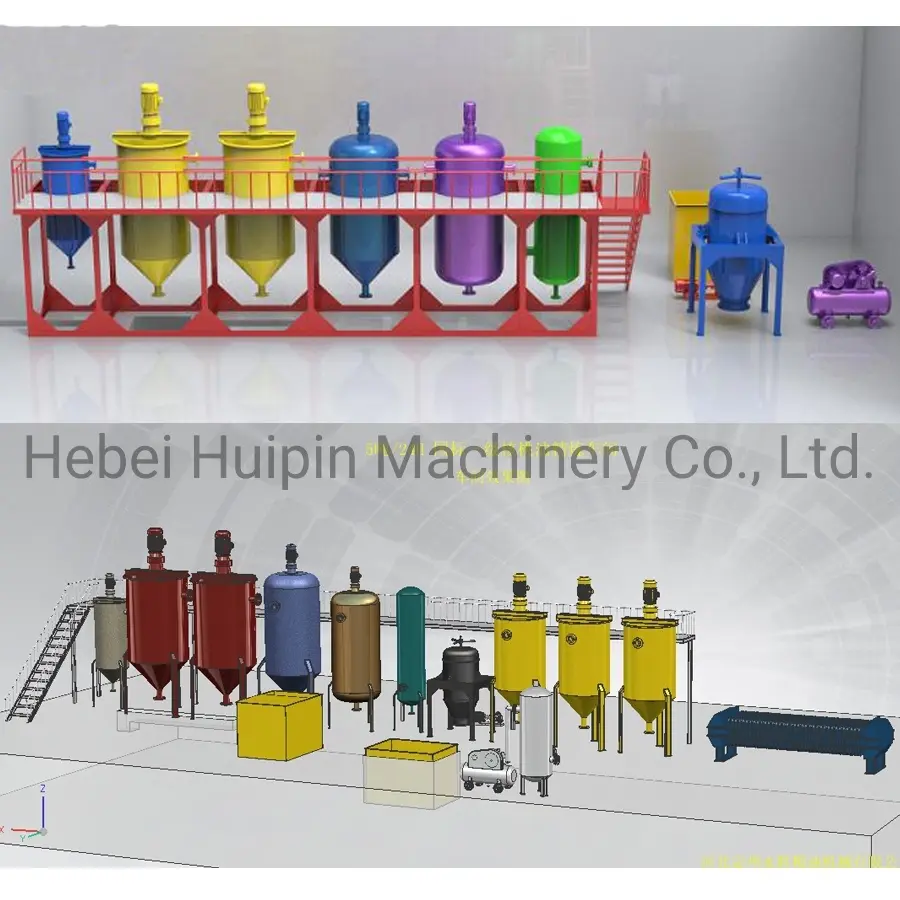nov . 30, 2024 05:15 Back to list
Optimizing Crude Oil Refining Processes with Advanced Machinery for Enhanced Efficiency
The Significance of Crude Oil Refining Machines in Modern Industry
Crude oil refining machines play a crucial role in the energy sector and the global economy. These advanced pieces of equipment are instrumental in converting crude oil into valuable end-products such as gasoline, diesel, kerosene, and numerous petrochemicals. Understanding the processes involved and the types of machines used in refining crude oil can provide insight into the importance of this industry.
At its core, the refining process involves multiple stages that transform raw crude oil into refined petroleum products. The primary steps include distillation, conversion, treatment, and blending. Each of these steps employs specialized machinery designed to optimize efficiency and yield high-quality products.
Distillation is often the first stage of the refining process. In this phase, crude oil is heated to high temperatures in a distillation tower, where it separates into various components based on their boiling points. The lighter fractions, such as gasoline and petrochemical feedstocks, rise to the top, while heavier fractions settle at the bottom. This stage requires sophisticated distillation units that can handle large volumes of crude oil while ensuring precise temperature control and optimal separation of components.
Following distillation, crude oil undergoes conversion, which is essential for breaking down larger molecules into more useful products. This stage often utilizes various processes, including catalytic cracking and hydrocracking. Catalytic cracking, for instance, uses a catalyst to facilitate the breaking of complex hydrocarbon structures into lighter, more desirable fuels. Modern catalytic cracking units are equipped with advanced technology that enhances yield and reduces emissions, contributing to more sustainable refining operations.
crude oil refining machine

The next step involves treatment, where the crude oil fractions are further purified to remove impurities such as sulfur, nitrogen, and metals. This is crucial for improving the quality of the final products and meeting environmental regulations. Treatment processes can include hydrodesulfurization, where hydrogen is used to eliminate sulfur compounds, and various other chemical treatments. The machinery employed in this stage is designed to ensure thorough purification while maintaining the integrity of the product.
Lastly, the final stage of petroleum refining is blending, where various fractions and additives are combined to produce finished fuels. This step is vital for achieving specific quality standards and performance requirements. Blending machines are precisely engineered to ensure homogeneous mixtures and are equipped with state-of-the-art automation technology that allows for consistent quality control.
The role of crude oil refining machines extends beyond mere production; they also embody the evolution of technology in the petroleum industry. With growing concerns about environmental impact, modern refining processes focus heavily on energy efficiency and reducing carbon footprints. Many plants now incorporate advanced monitoring systems and utilize data analytics to optimize operational performance, reduce waste, and minimize adverse environmental effects.
Furthermore, the rise of alternative energy sources is reshaping the crude oil refining landscape. As industries and consumers shift towards more sustainable energy solutions, refining operations are adapting by investing in cleaner technologies and processes. This transition not only helps in producing cleaner fuels but also assists refiners in maintaining profitability in a competitive market.
In conclusion, crude oil refining machines are vital components that fuel the energy sector and broader economic activities. Through complex processes that involve distillation, conversion, treatment, and blending, these machines enable the transformation of raw crude oil into essential products. As the industry continues to evolve, the focus on innovation and sustainability in refining technology will likely play a significant role in shaping the future of energy production. The advancements in this field are not merely technical; they reflect a broader commitment to improving our environmental footprint while meeting the world’s energy demands.
-
HP 120 Cold Oil Press - Hebei Huipin Machinery|Oil Extraction&Efficiency
NewsAug.15,2025
-
HP 120 Cold Oil Press - Hebei Huipin Machinery | Automated Oil Extraction&High Efficiency
NewsAug.15,2025
-
HP 120 Model Cold Oil Press - Hebei Huipin Machinery | High-Efficiency Oil Extraction & Automated Processing
NewsAug.15,2025
-
HP 120 Cold Oil Press-Hebei Huipin Machinery|Oil Extraction, Cold Press Technology
NewsAug.15,2025
-
HP 120 Model Cold Oil Press - Hebei Huipin Machinery Co., Ltd. | High Automation, Multi-Functional Compatibility
NewsAug.15,2025
-
Efficient Black Seed Oil Expeller | High Yield Oil Press Machine
NewsAug.15,2025
